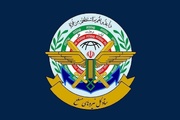Spanning 293 pages, the book contains nine chapters discussing the Islamic Revolution's root causes, a brief history of Iranian resistance against Shah Mohammad Reza Pahlavi, the realization of Islamic ideals, and criteria for supporting the Islamic Revolution, among other topics.
The book also addresses the “Second Phase of the Islamic Revolution” Statement issued in 2019, marking the fortieth anniversary of the Islamic Revolution's victory.
Led by Imam Khomeini, the Islamic Revolution is regarded as a significant contemporary event.

Understanding the Revolution requires more than statistics and political analysis; it demands a revolutionary and ideological perspective aligned with Khomeini's foundational thoughts.
Additionally, the book examines the social, economic, and cultural transformations resulting from the Revolution, illustrating their impact on Iranian society and politics.
It highlights the ideals that inspired the populace to rise against tyranny and the sacrifices made in the quest for justice and freedom.
The text also emphasizes the ideological foundations that set the Iranian Revolution apart from other historical uprisings, showcasing the unique blend of Islamic principles and national aspirations that forged a new identity for the Iranian people, resonating beyond their borders and inspiring global movements for change.
Ultimately, "The Islamic Revolution of Iran" serves as both a historical account and a philosophical discourse, prompting readers to contemplate the Revolution's enduring implications and its influence on contemporary political thought and action in Iran and beyond.
About the Islamic Revolution

The Iranian Islamic Revolution fundamentally transformed global political, cultural, and economic frameworks, establishing a governance model rooted in religious leadership.
It illustrated the interplay between religion and governance during a stark East-West division. Imam Khomeini's leadership was crucial to its success, distinguishing it from other revolutions that faltered due to weak guidance, often leading to authoritarian regimes.
The main challenge for such transformations is preserving the revolution's original objectives and direction to avoid deviating from its foundational principles.
About author
Esmail Fakhrian is an Iranian author and intellectual recognized for his works on the Islamic Revolution and Iran's socio-political landscape.
His writings focus on the revolution's ideological foundations, its implications for Iranian society, and the philosophical and theological underpinnings of the Islamic Republic.
Fakhrian's insights enhance understanding of the complexities surrounding Iranian politics and culture.
Shahid Kazemi Publishing House
Shahid Kazemi is an Iranian publishing house dedicated to producing and distributing books related to the Islamic Revolution, resistance literature, and the Sacred Defense. It promotes reading culture in Iran and has published various works, including life stories and narratives related to these themes.
10-Day Dawn marks the historic return of Imam Khomeini (RA) to Iran after 14 years in exile led to the glorious victory of the Islamic Revolution under the wise leadership of the Imam.
Reported by Tohid Mahmoudpour


























Your Comment